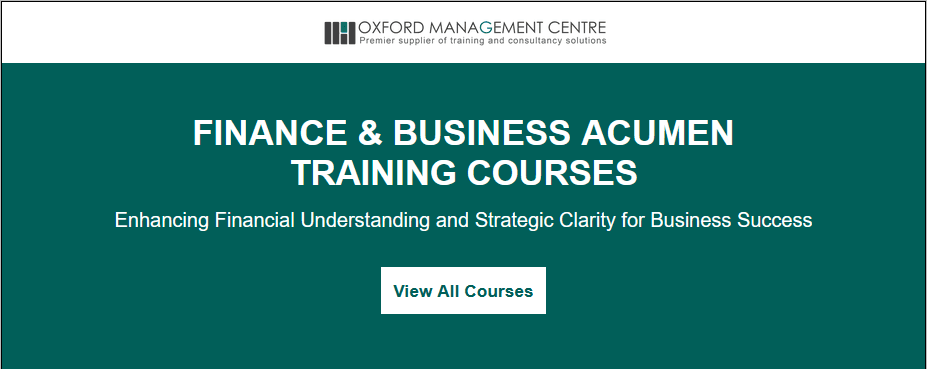
The Role of AI in Financial Decision Making and Strategic Planning
How Artificial Intelligence Is Shaping Smarter Financial Futures
Artificial Intelligence (AI) is transforming the landscape of corporate finance by enhancing accuracy, agility, and strategic foresight in decision making. In today’s rapidly evolving business climate, finance leaders are under pressure to make faster, data-driven decisions while managing risk and driving sustainable growth. AI technologies—ranging from predictive analytics and machine learning to natural language processing—are equipping finance professionals with powerful tools to automate processes, generate real-time insights, and support strategic financial planning with unprecedented precision.
Companies that adopt AI in their finance functions are moving beyond historical analysis to forward-looking intelligence. From budgeting and forecasting to cost control and investment planning, AI enables a holistic approach to financial management. As the volume and complexity of financial data increase, the ability to extract meaningful patterns and anticipate market movements becomes essential. For professionals seeking to stay ahead, participating in relevant budgeting and accounting training courses is key to mastering the integration of AI tools into traditional finance workflows.
The Intersection of Artificial Intelligence and Financial Strategy
Strategic planning in finance is no longer confined to static spreadsheets or backward-looking financial statements. AI empowers finance leaders with dynamic modeling, allowing scenario-based planning that can adjust in real time to market or operational shifts. Financial models driven by AI can evaluate multiple variables simultaneously—macroeconomic indicators, consumer behaviors, and even geopolitical trends—to guide decision-making with greater confidence.
AI-driven systems also enhance risk management frameworks. Machine learning algorithms can identify hidden correlations in data that might elude human analysis, enabling early detection of potential financial risks. This proactive approach supports long-term sustainability and sharpens an organization’s strategic edge. Businesses aiming to incorporate such foresight into their operations often begin with specialized finance and business acumen training courses, which introduce AI-driven financial modeling, real-time performance analytics, and smart investment strategies.
Moreover, AI can drastically improve capital allocation by identifying under performing assets or operational inefficiencies through data mining. Financial planners equipped with these insights can reallocate resources more effectively, enhancing overall business agility.
Transforming Financial Reporting and Budgeting with AI
Budgeting and reporting—core functions of any finance department—are being redefined by AI. Automated data entry, anomaly detection, and trend analysis significantly reduce manual effort and error rates. AI solutions can now process large volumes of data and generate reports that highlight key financial metrics, variances, and actionable recommendations with minimal human intervention.
Natural language generation tools within AI platforms can also convert complex financial data into executive summaries that are easy to interpret, enabling informed decision-making across all levels of the organization. These capabilities are essential for finance teams that must communicate insights to non-finance stakeholders or board members.
Professionals looking to sharpen their proficiency in this area can benefit from enrolling in artificial intelligence training courses, where they can gain hands-on experience in using AI for financial automation, budgeting, and strategic alignment. Such training ensures that finance leaders are not only fluent in AI concepts but also capable of deploying them effectively to drive value.
Enhancing Predictive Capabilities for Future-Proof Strategies
Predictive analytics is one of AI’s most impactful contributions to finance. By analyzing historical data and recognizing patterns, AI systems can forecast revenue trends, expense trajectories, and even market conditions. These predictive insights empower CFOs and strategy teams to make anticipatory decisions rather than reactive ones.
For instance, predictive AI can alert financial planners to emerging cost overruns or potential liquidity shortfalls before they escalate. When integrated with ERP systems, these tools ensure a seamless flow of insights from the operational level up to strategic planning.
To fully leverage these capabilities, professionals must bridge the gap between finance and technology. Targeted training courses in finance and business acumen are designed to build this interdisciplinary skillset, combining financial theory with hands-on AI application. This enables financial leaders to lead digital transformation initiatives confidently within their organizations.
AI in Compliance, Auditing, and Fraud Detection
Another vital application of AI in finance is compliance and internal control. With increasing regulatory scrutiny, financial departments must ensure strict adherence to compliance standards. AI tools can automatically scan transactions for anomalies, track changes, and generate audit trails in real time, dramatically reducing compliance risks.
AI’s ability to identify patterns indicative of fraud—such as duplicate payments, unusual vendor behavior, or inconsistent reporting—has revolutionized forensic accounting. These capabilities are particularly beneficial in high-volume transaction environments, where manual reviews are time-consuming and prone to oversight.
Budget analysts and compliance officers pursuing budgeting and accounting training courses will gain critical knowledge of how to integrate AI for improved internal controls, reporting transparency, and regulatory compliance.
Building an AI-Enabled Financial Culture
While technology plays a pivotal role, the successful adoption of AI in finance depends heavily on organizational culture and talent readiness. Building a data-driven, AI-enabled financial culture requires upskilling teams, encouraging innovation, and aligning AI strategies with business goals.
Leadership must invest in professional development pathways that align with both current roles and future capabilities. Encouraging employees to participate in artificial intelligence training courses not only enhances individual skillsets but also strengthens the department’s strategic contribution.
Ultimately, organizations that embed AI into their financial DNA are better positioned to navigate uncertainty, drive efficiency, and seize opportunities in volatile markets.
Conclusion: The Future Belongs to Intelligent Finance
As AI continues to evolve, its role in financial decision making and strategic planning will expand even further. Forward-thinking organizations and finance professionals must prepare to lead this transformation. The convergence of AI with budgeting, accounting, and business strategy opens up immense potential to improve decision quality, optimize operations, and drive innovation.
Exploring the latest training courses in budgeting and accounting, finance and business acumen, and artificial intelligence is essential for professionals ready to harness the full value of AI in finance. With the right knowledge and tools, finance leaders can turn today’s challenges into tomorrow’s competitive advantages.







